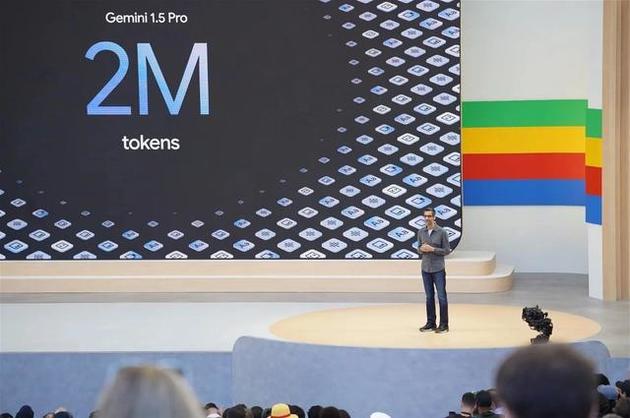
Photo/Video Screenshot
Despite OpenAI’s earlier demonstration of a major new product, Google has made a strategic move by launching an artificial intelligence (AI) search engine, defending its dominant position in the search domain. It competes with OpenAI’s newly released flagship model GPT-4o by introducing an upgraded and most powerful AI model called Gemini.
Starting from 1 AM Beijing time on May 15th, Google held a two-hour annual I/O developer conference Keynote speech at the Shoreline Amphitheatre near its Mountain View headquarters.
As expected, Google’s presentation was predominantly focused on AI. According to the official count at the end of the Keynote, the term AI was mentioned a total of 120 times.
Google CEO Sundar Pichai stated that all of Google’s work revolves around the generative AI model Gemini, expressing his hope that “everyone can benefit from what Gemini does.” AI search is one of the many services that Pichai mentioned Gemini will integrate with.
Additionally, Google Search will also have multi-step reasoning capabilities, able to process long questions with multiple constraints in one go, and will support a new form of search solution that involves “video capture.”
Google claims that within three months, it will launch what is said to be the most powerful AI model ever, Gemini Advanced. Starting this Tuesday, Google has added a new model to Gemini Advanced, named Gemini 1.5 Pro, which boasts the longest context window among global consumer chatbots, starting with 1 million tokens. Gemini 1.5 Pro will be available to Gemini Advanced subscribers in over 150 countries and regions, supporting more than 35 languages.
Pichai announced that Gemini 1.5 Pro “offers the longest context window of all base models to date.” He explained that Gemini 1.5 Pro will have a context window of 2 million tokens, which is double the current model’s 1 million token window.
Notably, Google’s announcement also had some similarities with the previous day’s OpenAI release—real-time AI assistants. Starting this summer, Gemini will also support real-time voice interaction, and later this year, it will introduce real-time video interaction. In the coming months, Google will also launch a custom AI assistant feature similar to GPTs, called Gems, which will be able to interact with the entire suite of Google services.
On the hardware front, Google announced the sixth-generation TPU chip, Trillium, and revealed that it would be using NVIDIA’s latest Blackwell architecture GPUs early next year. Additionally, topics that may interest Chinese investors, such as liquid cooling and optical cables, were also presented at the conference.


 川公网安备 51019002001991号
川公网安备 51019002001991号





